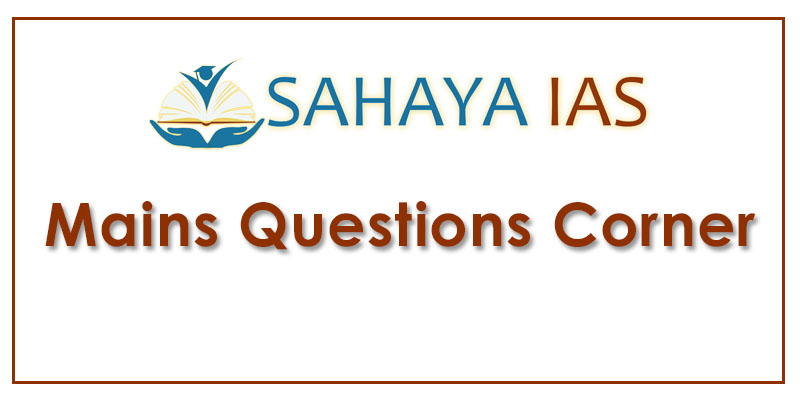Highlights
- India took a giant step towards the protection of its women and children when the Criminal Law (Amendment) Act was passed by the Lok Sabha in 2013.
- Section 370 of the Indian Penal Code (IPC) was substituted with Sections 370 and 370A, which defined trafficking and laid out the punishment for it.
- However, mere criminalisation of trafficking is not enough — several laws have not been implemented in letter and spirit in the absence of a comprehensive legislative framework.
- In the case of trafficking, data show that despite the 2013 law, there has been an increase in the number of victims of human trafficking.
- It is to tackle this menace that the comprehensive Trafficking of Persons (Prevention, Protection and Rehabilitation) Bill, 2018, was passed.Instead of mere criminalisation, the Bill seeks to systematically combat the organised nature of trafficking.
Multipronged approach
- The Bill ties together the approaches of prevention, rescue and rehabilitation to create a robust policy framework against trafficking.
- It places at its core the rights and welfare of victims of human trafficking.
- There are aggravated forms of trafficking which have been introduced, such as trafficking for the purpose of begging, or bearing a child, or for the purpose of marriage or under the pretext of marriage by administering narcotic drugs, hormones, or chemical substances for the purposes of early sexual maturity, and so on.
- Under the Bill, prosecution under these offences will be made timely and efficient by special public prosecutors.
- The Bill provides protection to witnesses.
- It also seeks to maintain the confidentiality of victims by recording their statements through video conferencing and by in camera proceedings.
- It states that there will be time-bound trials and repatriation of victims.
- A rehabilitation fund has been introduced for the first time which will be used for the physical, psychological and social well-being of victims.
- The Bill seeks to build the capacity of victims by providing capital, infrastructure, education and skill development to empower them to access justice and to prevent further trafficking.
National Anti-Trafficking Bureau
- For the first time, the National Anti-Trafficking Bureau will coordinate with authorities in foreign countries and international organisations, and facilitate inter-State and trans-border transfer of evidence and materials.
- It will strengthen the intelligence apparatus to improve the collection, collation and dissemination of operational intelligence.
- The Bureau will also coordinate actions and enforcement by various bodies or authorities established under this Bill.
- There will be State and District Anti-Trafficking Committees which will arrange for appropriate training and sensitisation of functionaries of all personnel.
- The Bureau will also develop and monitor a database on every crime under this Act. Such systematic surveillance of offenders will, in about three years, not only help prevent trafficking but pre-empt it.
Most clauses have little to do with trafficking and more do to with imposing surveillance
- The Trafficking of Persons (Prevention, Protection and Rehabilitation) Bill, 2018, fails in its fundamental purpose, i.e. it does not address the issue of trafficking.
- ‘Traffic’ or ‘trafficking’ is not wrong per se, but it is pejorative when the transaction involves prohibited goods such as narcotics or firearms or if it involves people.
- Article 23 of the Constitution prohibits “traffic in human beings and forced labour”. This means that human beings cannot be bought and sold.
- Barring one provision of the anti-trafficking Bill which criminalises the act of “buying or selling a person for a consideration,” the rest of the clauses do not address this aspect at all.
- They either criminalise acts that are already punishable under other laws or proscribe activities that are not only legitimate but also constitutionally protected.
- There is nothing novel in the proposed offence of “encouraging or abetting any person to migrate illegally into India or Indians in to some other country”.
- Besides, illegal migration does not involve elements of ‘trade’ in human beings or trafficking. To term it an “aggravated form of trafficking” is questionable in itself.
- The Bill also states that “whoever solicits or publicises electronically, taking or distributing obscene photographs or videos or providing materials or soliciting or guiding tourists or using agents or any other form which may lead to (emphasis mine) the trafficking of a person shall be punished with rigorous imprisonment.”
- This means that no trafficking needs to take place; a remote possibility is sufficient to prosecute persons and shut down websites.
- It is important to remember that similar provisions of the Information Technology Act, 2000, were struck down by the Supreme Court for being vague and over-broad.
- Most clauses of the Bill have little to do with trafficking and more do to with imposing surveillance and restricting freedoms through punitive overkill.
- The rhetoric around the Bill will also dissipate when we understand its interplay with existing laws, which have not been overruled or repealed.
- The anti-trafficking Bill relies on Section 370 of the IPC to define and establish that an offence of trafficking of persons has taken place.
Section 370 was introduced in 2013 on the recommendation of the Justice Verma Committee.
- In order to try offences under the Bill, the prosecution will have to first prove the subsections of Section 370, which are that the victim was transported, recruited, harboured, received or transferred for the purposes of exploiting her/him by using force, abduction, deception, or by abuse of power. Only then will the provisions of the Bill take effect.
- For the police and the courts, implementing the numerous anti-trafficking laws will be a nightmare.
- Only persons accused of trafficking will benefit from the legal mess.
It is common knowledge that if more laws are applied, the easier it will be to find loopholes and secure an acquittal.
Source: The Hindu


Comments (0)